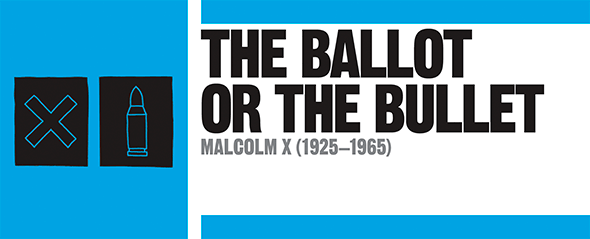
IN CONTEXT
Civil rights and equality
Self-determination
1947 The British are forced to leave India as a result of Mahatma Gandhi’s campaign for independence.
1955 Black American Rosa Parks refuses to give up her seat in the “white section” of a bus, sparking Martin Luther King to organize direct action.
1965 The assassination of Malcolm X leads to the formation of the Black Panther Party for Self-Defense, a militant black power movement.
1965 The Voting Rights Act is passed in the US, restoring equal voting rights to all citizens and overturning an earlier law that required citizens to pass a literacy test.
The civil rights movement in postwar America was a focal point for the long-running struggle to establish social and political equality across society. The means by which this should be achieved, however, was far from certain. Civil rights leaders such as Martin Luther King took inspiration from the nonviolent protest of Mahatma Gandhi in India, and built a similar movement that began to gain sympathy from all areas of society. However, the slow pace of change and the continued oppression of black people in America led many to contest this approach.

Malcolm X was one of the leading figures in the Nation of Islam, an organization that advocated ideas of racial separatism and black nationalism. In this capacity he articulated a view of the civil rights struggle that was very different from the mainstream represented by King. Rather than concentrate on nonviolence, Malcolm believed the struggle for equality was closely bound up with people’s ability to determine their lives for themselves, and therefore any attempt to restrict those rights should be met with direct action and, if necessary, force. The Nation of Islam forbade its members from taking part in the political process, but when Malcolm left the Nation in 1964 to start his own organization, he advocated political participation and demanded equal voting rights. He envisioned the development of a black voting bloc, which could be used to demand genuine change at election time and direct the actions of white politicians to ensure greater social and political equality. Despite this, Malcolm remained skeptical about the likelihood that the extension of voting rights would promote real change in the US. In particular, he was concerned about the disparity between the words of politicians during election campaigns and their actions once in government.
"It’ll take black nationalism today to remove colonialism from the backs and the minds of 22 million Afro-Americans here in this country."
Malcolm X
The year of action
In 1964, Malcolm delivered a speech in Detroit that contained a stern warning to politicians: if formal politics did not adequately recognize black people’s needs, they would be forced to take matters into their own hands, and violence would follow. “The young generation,” he said, “are dissatisfied, and in their frustrations they want action.” They were no longer ready to accept second-class status, and didn’t care whether the odds were against them. He said that black Americans had “listened to the trickery, and the lies, and the false promises of the white man now for too long.” Unless the political system became genuinely more responsive to the demands of black voters, there would be little alternative but to use not votes but guns; not the ballot, but a bullet.
Despite his high profile at the time, Malcolm X left few written words. However, his ideas continue to shape the civil rights agenda, with their focus on empowerment and reconnecting black Americans with their African heritage.

African-Americans carry a coffin and a “Here Lies Jim Crow” sign down a street to demonstrate against the “Jim Crow” segregation laws of 1944, which legitimized anti-black racism.
MALCOLM X

Malcolm X was born Malcolm Little in Omaha, Nebraska, in 1925. In the early part of his life, he experienced racism directed at his family, and in particular his father, a Baptist lay-preacher. His father’s death in 1931 precipitated the breakup of the family. Malcolm’s mother was committed to a mental institution, and he was taken into foster care. He fell into petty crime and was imprisoned for burglary in 1946.
During his imprisonment, Malcolm experienced a religious and social awakening, converting to Islam and becoming involved with the Nation of Islam (NOI). On his release, he took the name Malcolm X and rose to become one of the public faces of black nationalism in America. In 1964, he left the NOI and became a Sunni Muslim, completing his Hajj to Mecca and speaking publicly in Africa, Europe, and the US. In 1965 he was assassinated by three members of the Nation of Islam.
Key work
1964 The Autobiography of Malcolm X (with Alex Haley)
See also: José Martí • Emmeline Pankhurst • Emiliano Zapata • Marcus Garvey • Mao Zedong • Nelson Mandela • Che Guevara • Martin Luther King
